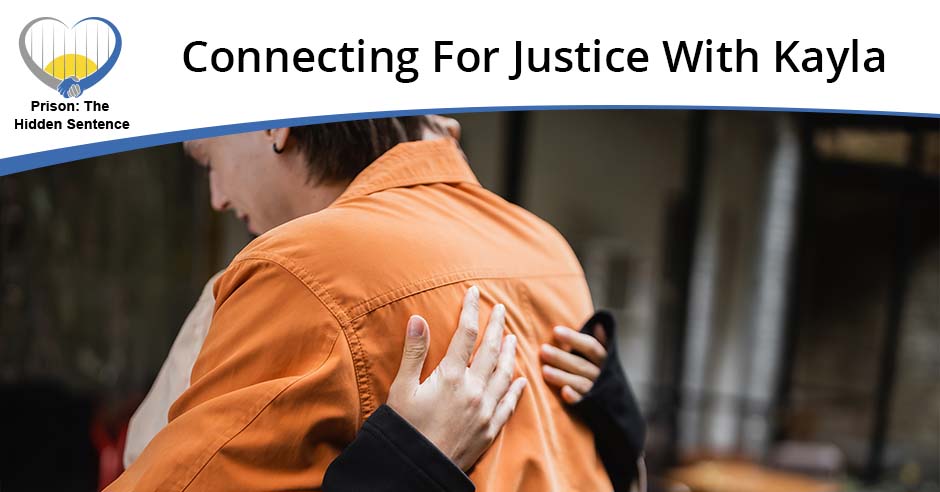
Join Kayla Victor, the Chair of the Connecting for Justice International Conference, and Julia Lazareck, founder of Prison The Hidden Sentence and president of Prison Families Alliance, as they discuss the significance of this year’s event, emphasizing the importance of sharing stories and gaining insights from diverse perspectives. From individuals with loved ones in the carceral system to counselors, returning citizens, educators, law enforcement, judges, elected officials, victims of crimes, students, and more, this conference brings together a wide array of voices. Through sharing information and learning from one another, attendees collaborate towards positive change, fostering a more compassionate and empathetic world. Mark your calendars for September 18-20 in Ashland, OH, where this conference, in partnership with Ashland University and The Ridge Project, offers a safe, nonjudgmental space for forging new connections and building a supportive community. No matter when you listen to this podcast, you’ll find inspiration and insights to support anyone affected by their involvement with or connection to the carceral system.
—
Listen to the podcast here
Connecting For Justice With Kayla Victor
I’m so excited to bring this show to you today because I’m here actually in person with Kayla Victor, who is the chair of Connecting for Justice. This is a conference that is so needed. I’m so excited to be talking about it because it’s something that hasn’t been done before to bring everybody together. Kayla’s going to talk more about it. We’re going to discuss what the conference is. When it is? Also, talk about the Prison Families Alliance that supports the families and how the PFA, Prison Families Alliance is involved with this along with other sponsors that are doing great things in the carceral community.
When we talk about the carceral community, we’re talking about prisons, jails, people who are incarcerated, people who are coming home or returning citizens, and families that are with their loved ones as they’re going through the whole carceral system. Also, how we can bring everybody together. Until we all talk together and until we all understand each other, we cannot change. Change starts by understanding each other, by looking at other people, and seeing them as fellow human beings.
That’s our goal to talk about the conference, to talk about the carceral system, to talk about our families, and how we can bring everybody together whether they’re involved in the system on the inside or the outside. If they’re in law enforcement, if they’re an attorney, or if they’re going to school to join the ranks of law enforcement or the judicial system. There are so many facets to this. By bringing everybody together, we can make change and have a better community and a more compassionate world. I’m so happy to be here.
—
Kayla, Welcome.
Thank you for having me.
This is so exciting especially to see you because we all live in different states and that’s what’s so great about all these podcasts, we can Zoom and use other ways to connect and communicate with each other. Let’s talk about Connecting for Justice or this conference that’s happening in September. Do you want to tell us a little bit about how it came together and what the mission is, and we’ll have a conversation here?
Connecting For Justice International Conference
Connecting for Justice International was formerly the International Prisoner’s Family Conference. We’re going to be having our 16th annual conference this year. We’re very excited. It will be in September 18th, 19th, and 20th. What we’re excited about is that we’ve partnered with Ashland University in Ashland, Ohio. They are our true partners. We’re working together with them. The conference is going to be in association with them then also the Ridge Project which is also in Ohio.
They’re helping us to put together the boots on the ground and make this conference a little bit more unique because we are trying to focus on bringing everybody together in the same room to have some open conversations in a safe space. The mission of the conference is to inspire people to unite and make a difference in the carceral system. We have this vision that the board came up with. It is to cultivate a more empathetic role for anyone who’s impacted by the carceral system. That includes the people that are working within the system.
You talk about our goals and mission. To be transparent, both Kayla and I are on the board for Connecting for Justice and it’s very dear to our hearts because we know this is needed. When you talk about the conference, I’ve interviewed your mom and other people who have been involved in the conference over the years. This is the 16th year.
I know that we had to go online for a couple of years because of the pandemic and this year we’re going to meet in person. We’re so excited that we can all come together because it makes such a difference when you can bring people together. Could we go back to your mom and how she started it and the reasons and how it’s all come together that were able to carry on her vision?
She had a non-profit called Community Solutions of El Paso in El Paso, Texas. She was working with children who had a loved one who was incarcerated and realized that there was a big need to make a difference in the community. She decided that she wanted to have the Prisoners Family Conference. She was very adamant about naming it that. She worked hard to build it up over the years and this is going to be the 16th year. Through the years, we’ve had lots of different people who have come to talk at the conference.
We’ve had judges, attorneys, law enforcement, and people from addiction specialists and the government. We’ve had a lot of great people who have attended. Now, we want to focus on bringing her legacy forward. She always thought that everybody should be in the room and having a conversation so that people could make a difference. That’s how where we’re at today.
Everybody should be in the room and having the conversation so that people could make a difference. Share on XThat was Carolyn Esparza who started this. Unfortunately, she passed away last year. Kayla has been involved with the conference from the very beginning and has been a Trailblazer in this, making sure that everything gets done. Anybody who’s been to one of the conferences knows how well-planned they are, how they flow, and how we’ve been able to create community and have these wonderful speakers.
Kayla is carrying on the legacy as chair and moving everything forward. PFA is so excited to be a part of this along with the other organizations that are in partnership to make this happen. How did we decide on Ohio? I know when we started planning this, we were talking about the board looking at all these different places to go or looking for a central place to go that would be easy for people to get to. Can you talk about how this started? How did we get to Ashton, Ohio?
Catherine Tijerina with the Ridge Project contacted me and said, “We’ve got this idea. We want to connect you with Jim Cox with Ashland University and see if maybe this might be a fit for the conference. I’d like to see your mom’s legacy continue and we know that you’ve been working hard with the board to try to move things forward.” She set up the initial conversation and Jim and I hit it off and said, “Let’s do this.” Before the end of the last conference, it was a handshake deal saying, “We’re going to do this. We’re going to announce it. We’ll then figure out the details of how to make it work later.”
That’s what we’ve done. There have been a little bit of trials and tribulations trying to get everything out because there are more of us making decisions which is fantastic. We’ve got a committee that we put together. There are 25 people on the committee, which is very exciting. They’re from all around the world. We have Smita who calls in from India at 3:00 AM. She’s very excited about being part of this. We have a lot of people who guided me especially throughout my mom passing away, and helped us to move the agenda forward. which is great because we all see that there’s a need to come together.
Creating Compassionate Communities
I don’t think anybody realizes how much work it is and how much you put into it and dedicated your time to it. I can say for myself that I appreciate it so much because I can see the vision and I can see what it is and what we’re moving towards and what it’s going to be this year the first of many years it’s going to grow and bring more people in. That’s why I wanted to do this show today to let everybody know about this conference and it’s in September. You have plenty of time to plan for it. Let’s talk about who should attend. There’s a long list of people that we have on our list. Do you want to go through it?
I don’t know if I would say them all but I will highlight them. Anybody that has a person that’s incarcerated. Anybody who has a family member who’s incarcerated or a friend who has that impact on them, then anybody who’s been formerly incarcerated. We’ve had lots of individuals come to the conference and speak at the conference. Addiction specialists, attorneys, people from the chaplaincy or clergy, adult children of prisoners is another one, people from the criminal justice system.
Healthcare is a big issue not only for people who are in prison but also for people who are left at home. We’ve heard lots of stories about people not having insurance after someone’s been incarcerated. It impacts the family so that’s important. Mental health is a big area that has professionals that have come and people from corrections, parole, and probation. Different social services and other nonprofits are also doing some amazing work in the community. The goal is to get those people together.
Educators, now that we partner with Ashland University. We’re very excited about it. They do a lot of work inside the prison education system. We’re happy to have them as our partner this year. Judges and law enforcement and anybody else that you can think of. We’ve had people who have been victims of crimes and we acknowledge that. Anybody that’s working with youth, we’ve established lots of relationships with organizations that focus on youth and college students. We’re doing this at the university. This is going to be exciting. We’re going to have lots of people that can attend that are right there on the college campus.
Possibly CEUs for some professionals.
We’re very excited about that opportunity.
It’s so important for professionals who are out there to meet the families, to put a face to it, and to humanize everybody. Then for people that do have somebody that’s incarcerated or even returning home like we talked about unification for families because when somebody comes home and when somebody’s released from prison or jail, it’s not over. It’s important for everybody to understand what the family’s been through and what the person that’s been incarcerated through, but then all to see the point of view of law enforcement or from the correctional officers or the attorneys or the judges, that we need to understand each other.
That’s why I also think this is so important because once we bring everybody together, you don’t know what somebody else is going through but then when you talk to them, you have a better understanding. You’re more compassionate. We’re creating more compassion for people to understand each other which is so important. As I think a lot of people, my brother was incarcerated, and before that happened and with a lot of families, especially the meetings for Prison Families Alliance, before this happened to them, people didn’t think about the criminal justice system.
We're creating more compassion for people to understand each other. Share on XThey didn’t think about the carceral system. They didn’t think about what was going on with the families or the person that’s incarcerated. It wasn’t until for me when my brother was incarcerated that I saw this whole new world. It was like what my friends said. It was like this curtain open to this whole other world. If we could bring everybody from this other world together into the mainstream and raise awareness so everybody’s aware, everybody can look at each other differently because we don’t know what everybody’s been through.
It wasn’t until I started talking about my brother that I found out that other people that I knew had people who were incarcerated. We all were quiet about it because there’s so much shame and stigma with the family. When somebody comes out it’s so difficult for them to integrate into society. By having all these organizations together, they can better help the person that’s re-entering society.
As we know, when people are incarcerated they’re coming home, they’re coming to your communities, it’s in our best interest to make sure that the families are healthy, that the person that’s incarcerated is healthy, and that the communication exists between the family but also for the people that are supporting the people that are incarcerated and coming home.
Join And Volunteer
I cannot say enough about this conference and all the things that we’re doing. Kayla, let’s talk a little bit about how people can help. There’s so much to do. We’ve got our committees. We have 25 people which is wonderful. We’re in partnership with Ashland University and the Ridge Project, just so much synergy going on. What else can people do who are tuning in?
Share our information. That’s number one and we’ve got information that’s going out in the next day or so for call for presentations. That’s going to be very important to get the right people in the room.
By the time this has gone out, we should have our presenters or some of the presenters. If you are listening and you haven’t signed up to present and you want to, there’s still time. When is the deadline to submit?
June 1st is going to be the deadline for submission. Hopefully, by then, we’ll be able to quickly after that will be announcing working with the Ridge Project at Ashland University to bring about some different types of presentations than we’ve had in the past. That’s going to be very exciting. The way people can help is there are opportunities to volunteer. We have CID Spaces that has stepped up this year and they’re helping us with our graphics design, which is phenomenal and they’re going to be a great partner for us. We’re excited about that. We’re always in need of help. People can contact us and touch base with us. Whatever skillset they have, I’m happy to put people to work.
There’s always something to do and to be involved. When I first attended the conference, I think it was the 9th conference, that’s where I met everybody. When I first came in, I felt so welcome, because nobody was making judgments. It was a safe place and there was a mirror there. There was a judge. Other people were in law enforcement. It was strange for me being new to this and seeing everybody talking and having those conversations and understanding each other so that they could make things better.
That was the first year. After that, I became more involved. These are great people. It’s unfortunate how we have to meet. Once we do, I’ve been involved ever since and I got to volunteer to be a bigger part of it. I even got to present. For me, to be able to talk about it and we’ve had other family members that were able to tell their story which is so cathartic because a lot of times people both on the outside that have family members or friends or that have been incarcerated keep everything inside and we know that when you keep it inside you can get sick.
Getting it out is so cathartic and then other people here like when I was hearing other people’s stories, I could relate and I was like, “I’m not alone. There’s other people.” It was such a great experience and being a part of it. If you’re interested in volunteering, and I want to reiterate what Kayla said if you do want to present on June 1, 2024, you need to get your submission in there.
There’s a committee that will review. We’d love to get everybody in there to talk but there are only so many slots. There are a lot of different tracks. Look at your email. Sorry, if you’re not on the email. How can they get in touch with your email and then also the website, which I don’t think the name is going to change?
We haven’t changed the name yet so it’s still PrisonersFamilyConference.org is our website. That’s PrisonersFamilyConference.org. Our email is simple as well. It’s Info@prisonersfamilyconference.org. We would look forward to hearing from everybody. One of the things I think my mom would say if she was here is it’s been like a family. The conference is more like a family reunion where you’re very excited to see your family, which I know doesn’t happen a lot in a family. We’re very excited and we’re so excited that we’re going to be back live in person and get to hug people. It’s been a lot of years.
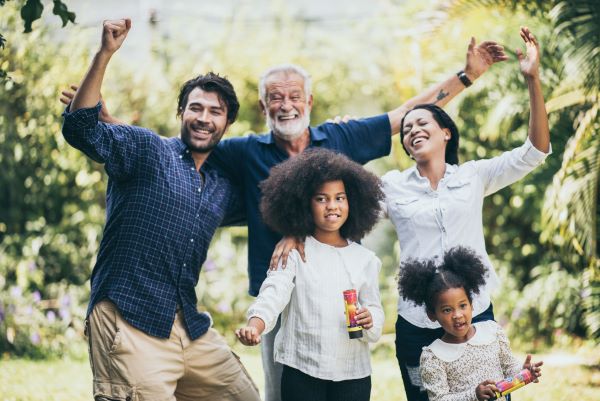
It was 2019 when we slowed things down. This will be great to get back in person and see people and meet new people. We want to make people feel welcome. I know people think that strange that we want law enforcement there. Last year, we had a law enforcement and somebody who worked inside the prison. That was amazing to hear his stories and to realize that he had a lot of empathy and cared about the people that he was over. That was crazy. We want more people in the room who want to have those conversations.
Then also Connecting for Justice formerly the International Prisoners Family Conference is a non-profit. Prison Families Alliance is a non-profit. If people want to support the conference and if they want to support our families, you can make donations. We will have links to the conference, to PFA, to CID Space, to the Ridge Project, and to Ashland University in the blog. All of that information will be in there. We gave you information on how to contact the conference, which is Info@prisonersfamilyconference.org and somebody will get back to you to answer any questions. What are the dates of the conference again?
They’re going to be on September 18th, 19th, and 20th.
In the 20th, there’s going to be something special. I don’t know if we can talk about it here.
People have to stay tuned and check us out. We’re very excited about it.
Bringing International Stories
What Kayla has put together with the team and the events and everything that’s going to happen there, I cannot wait. I get goosebumps because we’re going to be in person. We’re going to get to see each other and I want to talk about when I attended the conference of what happened with PFA. I think whoever has heard me before has heard me say this, but that’s where I met Barbara Allen who had a support group for families, like I did here in Las Vegas and Barbara is in Long Island. When the pandemic hit along with Kayla we said, “What do we do?” We went online.
Kayla, Barbara, and I started once a month when the pandemic hit having a support meeting. Barbara and I created the Prison Families Alliance at the end of 2020. Now, there are 18 facilitators and it’s all online and meetings every week. There are several meetings. It’s International where you have people calling in from other countries because they don’t have anybody to talk to. I want to then bring that into the conference when it becomes international. How did that happen? Now you have people coming from other countries to wherever the conference is to speak and join with others.
My mom worked with Francis Sylvia who is from Uganda. He talked to my mom and he put together a group of people that wanted to connect. The conference, one year, they decided to focus on the international component and they’ve grown and they’ve been in a group that’s grown outside of the conference, but we still stay very connected with what they’re doing and share information. Their attendees attend our conference. Some of our attendees attend their conference. We’re very excited about things that have grown from the conference. You never know who you’re going to meet. You have opportunities. You were in North Carolina and had a meal with Chuck Gallagher who was one of our speakers at one point.
That was great. Chuck is great. Talk about second chances.
I remember when my mom and I were driving across the United States. At one point, she would stop in and see people in different states. I think we stopped in Utah and talked and had coffee with somebody. We stopped in New Mexico and had coffee with people. It’s like a family reunion and you like your family and it was great because you can go meet people who are on the way when you’re driving in the United States.
I know some people love even going to New Zealand and other places around the world, which is phenomenal. We had a speaker last year from Israel, which was amazing. That was when the world was blowing up at that point. We were hearing first-hand what was going on over there. It’s great how the whole world can come together and be connected. It’d be great to see who comes this year.
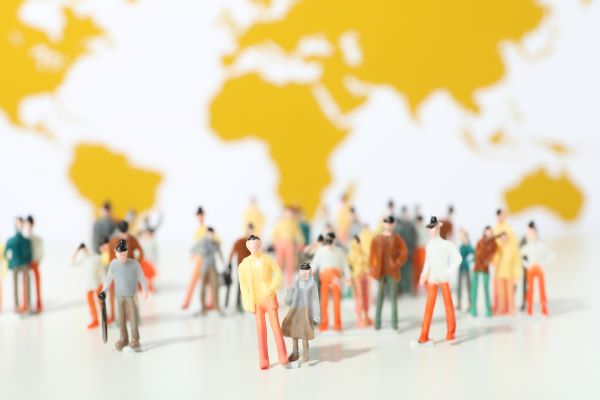
It was about Nancy Locke and her family outside. She’s been very instrumental in bringing information about what they’re doing in Scotland.
They were great speakers that she brought last year. The year before, she had somebody from England that was there. She’s been great about bringing people together and connecting with us. I look at them as advisors when I call people like people that have been to the conference and know the great work that we’re doing and we know the great work that they’re doing. They are for me their advisors. I didn’t have the same background as my mom so it’s allowing me to build more relationships outside and help the conference grow.
What also grew out of the conference was the advocacy in action organization with Dr. Avon Hart-Johnson and the wonderful work that they’re doing in the papers they put together. I was a part of it. I got to play the little kid, the Two Tales.
That was the work that they were doing. They meet regularly and they’re working on some great stuff that they’re going to be putting together for this year’s conference. We’re very excited about it.
I want to talk about the Two Tales high level. It was so cool because they put together a skit that was from different people’s point of view. You could see it from the youth’s view. You could see it from the grandmother’s view. You could see it from the correctional officer’s view, and then there were other people involved. You could see what everybody is going through in their life and why they might act a certain way when people are together and how by being compassionate and understanding, it can be a better experience when you’re going through having somebody in the carceral system, whether you’re visiting, whether you’re the one that’s incarcerated or whether you are part of the law enforcement community.
I thought that was so great. Along with everything else, I thought that was so eye-opening of what was going to happen at this conference. It’s things that you don’t think about or you don’t know. You think somebody is over there doing this and why are they doing that? They come up and speak and you’re like, “Now I understand why that happened” or, “That happened, somebody talked about their experience, I’m not alone. Somebody else thinks that.” It’s so amazing to bring everybody together.
That describes that as empathy and having that better understanding of what empathy is and I think that that’s what Dr. Avon Hart-Johson has worked towards and she’s done an amazing job doing that.
The people on the board are amazing, Jim, Kim, and Barbara to name a few. The time that everybody puts in. I hope people appreciate when they do come to the conference how much time, thought, and work has gone into it. Nobody’s getting paid. This is coming from the heart. This is a passion because we know that change is needed. The only way we’re going to have changes is if we bring people together.
We know that change is needed in the carceral system, and the only way we're going to have change is if we bring people together. Share on XYou cannot do it all by yourself. We need everybody to be at the table and to have those conversations and to move that needle.
We’re moving the needle and what does your mom say about the plants?
Bloom where you’re planted.
We’re playing the seeds so people can bloom and create a more empathetic and compassionate world.
We need to make a difference in our communities.
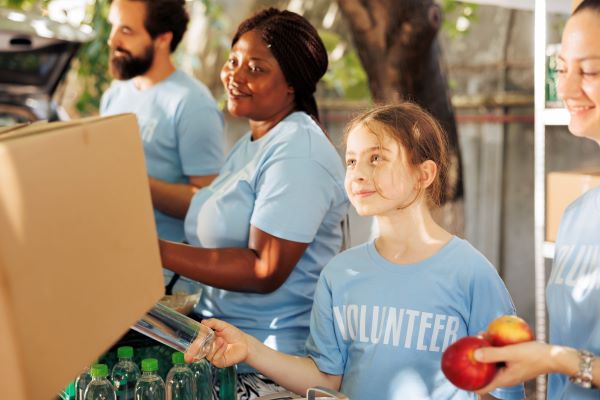
Thank You
We want to reach out and thank our partners the Ridge Project, Ashland University, and CID Space.
All of our board members. I am going to hop in there and jump over you on this. I mean our partners and our board of directors that have stepped up. One of the things that happened after my mom passed away was I reached out and said, “Do we want to close this or does this need to end.” Every one of the board members said and you included for sure, “Absolutely not. We need to continue this on and we’ve got a mission and we’ve got to focus on what we’re going to do and how we’re going to make a difference in our communities.” It’s not a normal board. Where only 20% of the people work and 80% take the credit but it is 100 % all the time. I appreciate everybody answering all my emails and questions and anybody that we’ve aligned with for sure.
Everybody does something. Everybody contributes, everybody does something, everybody does what they can. We all have busy lives. We all have life happen, and so we do what we can. We also want to thank all of the people who have attended over the years. People are staying in touch and friendships have been created from that. We’re sitting here together. I don’t think we would have met. We’d visited and seen each other over the years along with other people. I’ve visited other board members and other family members.
I think that the community that we’re creating and growing is so important because people need to heal and people need to know they’re not alone no matter where they are on the spectrum. There’s stress everywhere on all sides of it. That’s why it’s so important that we do bring the health workers in and the educators and other people too. I think we’ve addressed everything that we wanted to. We told people about the conference.
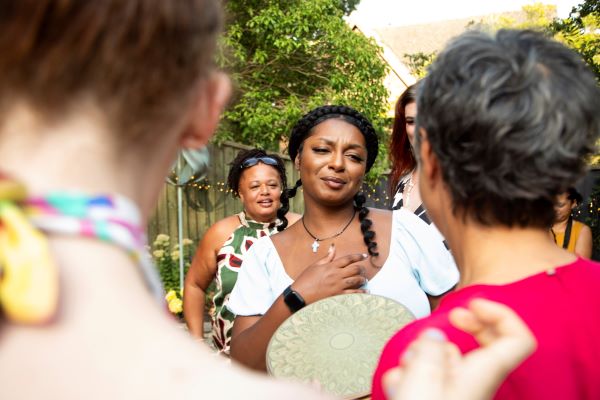
It’s going to be on September 18th, 19th, and 20th in Ashland, Ohio. You fly into Cleveland Airport and more information will be coming. If you’re not on the newsletter, Kayla sends the newsletter out monthly, so you’re not bombarded with emails. If you want to be on that, email Info@prisonersfamilyconference.org and go to the website. Read the blog and show up.
Plan to attend.
We hope to see there. It’s going to be amazing. Thank you, everybody, for tuning in. This is going to be the beginning of many more conferences, more connections, Connecting for Justice. Thank you, Kayla.
Thank you for having me.
Important Links
- Kayla Victor – Website
- PFA
- International Prisoner’s Family Conference
- Ashland University
- Ridge Project
- Info@prisonersfamilyconference.org
- Prison The Hidden Sentence
About Kayla Victor
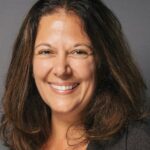 Kayla Victor is a curiosity enthusiast who has worked on an eclectic range of projects including; helping companies build and leverage business to business relationships and bridge community outreach efforts while having the most fun possible.
Kayla Victor is a curiosity enthusiast who has worked on an eclectic range of projects including; helping companies build and leverage business to business relationships and bridge community outreach efforts while having the most fun possible.
Kayla has been the event coordinator for the International Prisoners’ Family Conference for the past 12 years. She is a solution based problem solver who thinks strategically outside of the box and looks at businesses from a 360 degree viewpoint and strategizes to always put people first. Her diverse experience; includes working with a variety of companies, from small business to Fortune 500 including an eclectic range of projects in communication integration, advocacy, government affairs, marketing strategies, project management, business development, entertainment and food/hospitality management.
Ms. Victor mentors many young adults, volunteers with a variety of organizations and is passionate about teaching kids they have boundless opportunities to build their skills and guiding them to see a more productive future.
Love the show? Subscribe, rate, review, and share!
Join the Prison: The Hidden Sentence Community today:

Leave a Reply